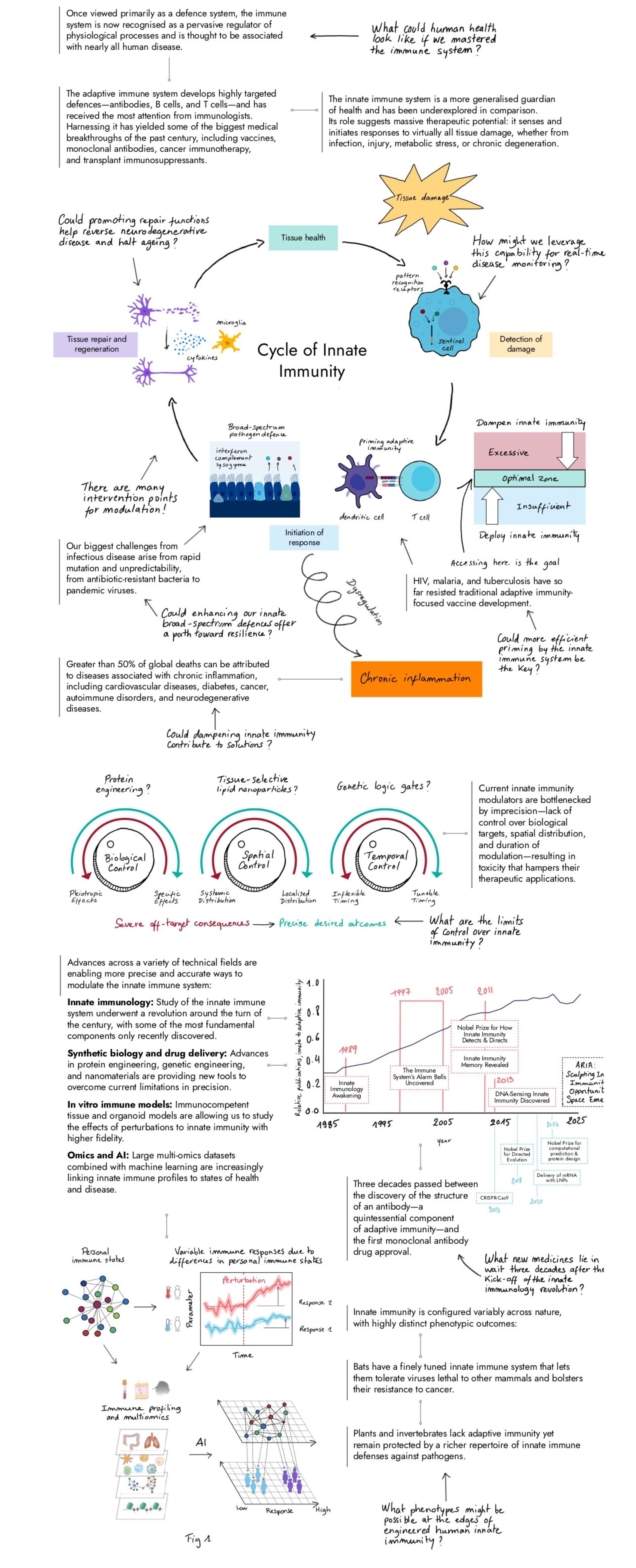What if we could modulate innate immunity with precision and control to unlock a new paradigm in human health?
Defined by our Programme Directors (PDs), opportunity spaces are areas we believe are likely to yield breakthroughs.
In Sculpting Innate Immunity, we're exploring if precision modulation of innate immunity can unlock transformative solutions for society’s major health challenges, from rapidly mutating pathogens to chronic disease.
Beliefs
The core beliefs that underpin this opportunity space:
The immune system is responsible for either maintaining health or mediating pathology for nearly all known human disease → effectively harnessing the immune system is essential if we wish to transform human health.
The innate and adaptive immune systems are equal pillars of immunity but so far, we’ve largely only reaped the benefits of modulating the adaptive immune system → the innate immune system is the next frontier for unlocking the full benefits of immune modulation.
Optimal modulation of the innate immune system will require 'sculpting' with both precision and accuracy → new tools from synthetic biology, drug delivery, and in vitro immune models, combined with new insights from innate immunology, large-scale biological data, and AI, can create a new therapeutic paradigm across the spectrum of disease.
Programme: Sustained Viral Resilience
To build a programme within an opportunity space, our Programme Directors direct the review, selection, and funding of a portfolio of projects.
Backed by £46m, our Sustained Viral Resilience programme aims to engineer the body's innate immune system, creating a new class of medicines we're calling ‘sustained innate immunoprophylactics’. If successful, they’ll provide durable, broad-spectrum protection against multiple respiratory viruses, creating a foundational resilience to viral disease that complements traditional vaccines.
We're now inviting proposals from across the ecosystem, in fields like immunology, synthetic biology, AI, materials chemistry, health economics, and science communication.
Sign up for updates
Stay up-to-date on our opportunity spaces and programmes, be the first to know about our funding calls and get the latest news from ARIA.


